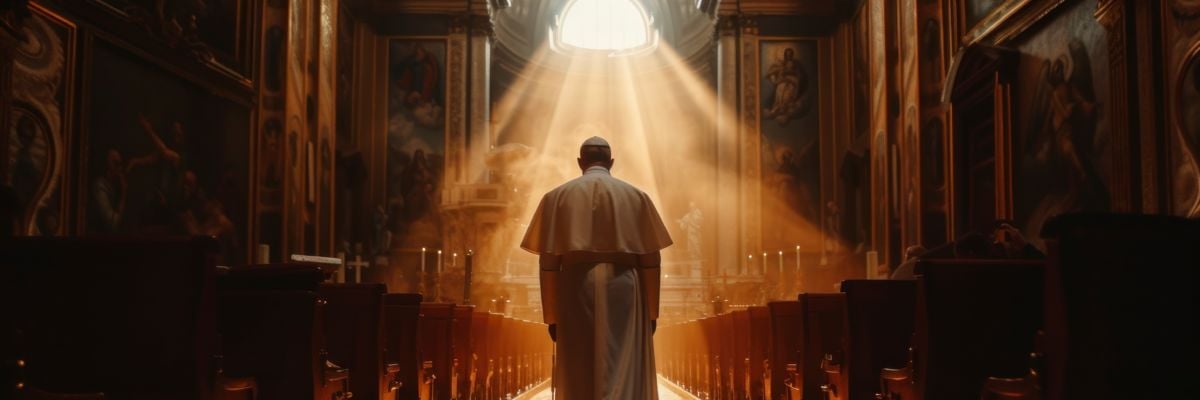
Jimmy Akin addresses a common objection to the Catholic Church: the trustworthiness of the papacy. He delves into the historical context of papal leadership, including the role of the Holy Spirit in guiding the Church.
Transcript:
I mentioned that I’m a catechist, and I work with adults mostly, and I have a woman who is discerning Catholicism, and she has the typical objections where you might expect some with Marian dogmas, but one is with the papacy. And her objection is she doesn’t understand why we trust the interpretation of Scripture
and the discernment of the papacy, considering throughout history there have been a handful of bad popes, but also in recent years, popes who have made comments which are confusing.
And she has a difficulty accepting not the legitimacy, but trusting the discernment of the papacy. I’m not sure how I can best answer that.
Okay, so we’ve got two issues here. One of them is bad popes, and the other is confusing statements. Now I’ve addressed the subject of bad popes in my book, A Daily Defense, and that book, It Strikes Me, could be extraordinarily useful for a catechist because it covers over 300 different objections that people might have to the Catholic faith. I’ll give you kind of a summary of the key point, which is we’ve had bad popes from the beginning starting with Pope number one, Peter. He denied Jesus three times as Jesus predicted he would, and yet God still worked through Peter.
After Peter repents, Jesus restores him. He has him confess his love for him three times, and Peter continues to be the leader of the disciples, as we see in the book of Acts. He even notes in the Acts 15 council that God made a distinction between you and me, when you be in the other apostles, and me when it came to admitting the first family of Gentiles into the church. And so God continued to give Peter a special role. Jesus also envisioned him continuing to exercise this special role. In Luke 22, he tells Peter before the denials that when you have repented, strengthen your brothers. So he envisions Peter fallen, but then repenting and continuing to play a special leadership role. So if that’s the way it worked with the first pope, we would expect the same principles to apply later in church history, especially given that Jesus promised the Holy Spirit would guide the church into all truth. And that’s in John’s gospel and that he indicated he himself would be with the church until the end of the world. That’s at the end of Matthew’s gospel. When it comes to confusion, if you’re going to look at confusing statements as something you want to have nothing to do with, well, then you better write off large chunks of the Bible because large chunks of the Bible are confusing. In particular, you should write off the letters of St. Paul because the Bible even admits they contain stuff that’s confusing. Peter talks about how Paul has written you. This is in Peter’s letters. He talks about how Paul has written to you according to the wisdom given him. And he says in his letters, there are some things hard to understand, which the uninformed and the unstable twist to their own destruction. So scripture admits that St. Paul can be confusing.
And yet we trust that the Holy Spirit was working through him. And so if we can trust that the Holy Spirit was working through confusing expressions given by biblical authors, including St. Paul, then we can also trust that the Holy Spirit can work through popes or other churchmen who say confusing things too.
Hey, thanks for watching. If you like this Catholic answer, be sure to like, subscribe and check out our live streams Monday through Friday, 3 to 5 p.m. Pacific, or find the episode after on YouTube, your favorite podcast platform or our Catholic Answers app.



